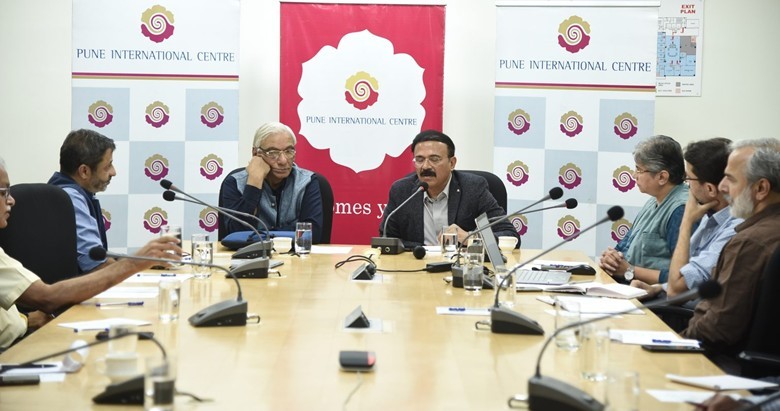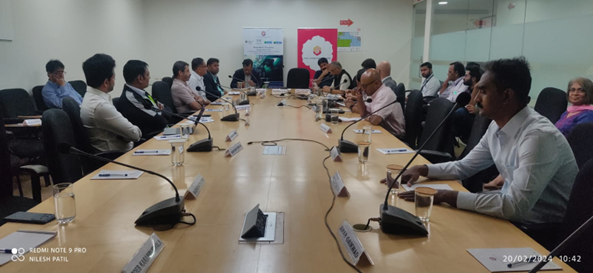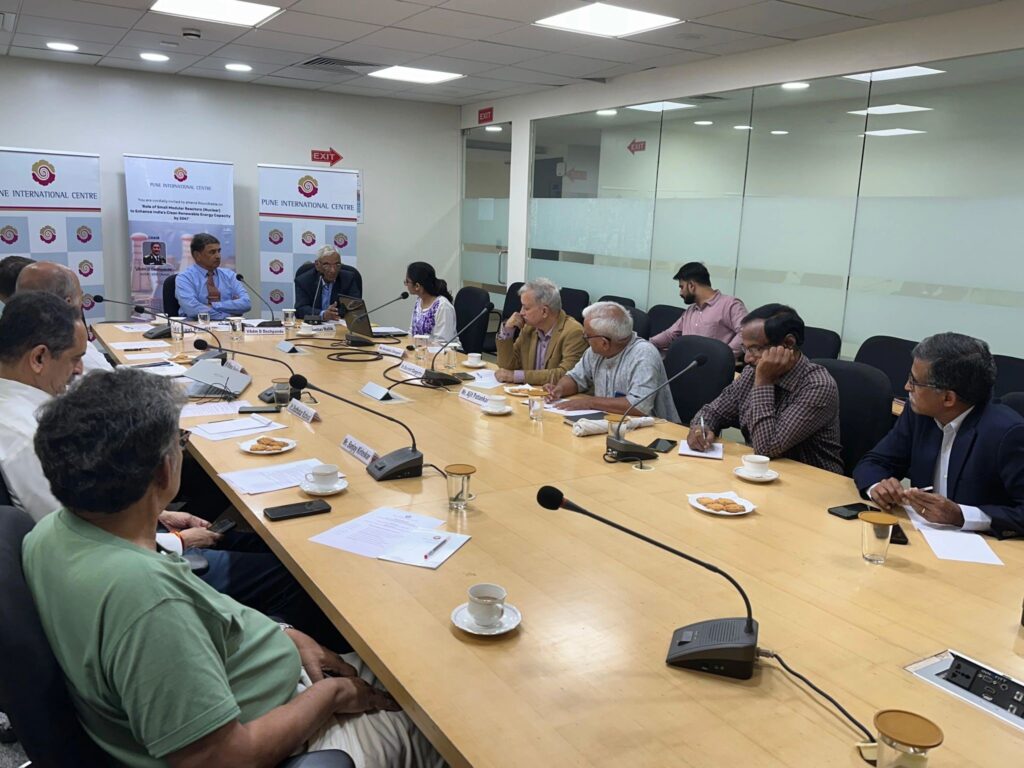Events

Round Table Discussion on
Clean Energy Conclave: Scaling Renewable Energy Smart Microgrids
The Clean Energy Conclave focused on scaling renewable energy through smart microgrids (micro GIDs) specifically for the Pune Metropolitan Region (PMR). Organized by the Energy Environment and Climate Change (EECC) vertical of Pune International Center (PIC), in collaboration with the Center for Sustainable Development (CSD) at the Gokhale Institute of Politics and Economics and the Clean Energy Access Network (CLEAN), the conclave brought together experts from government, academia, industry, and civil society to deliberate on policy, technology, finance, and community engagement aspects of renewable decentralization.
The event highlighted India’s vast solar potential and the urgent need to transition from fossil fuel-based centralized power systems to decentralized, renewable-based smart microgrids. It underscored the complexity of this transition, which spans technological, behavioral, policy, and economic dimensions. Key discussions revolved around the maturity of renewable technologies (solar, wind, biomass, biogas, and battery storage), grid integration challenges, policy frameworks enabling net metering and subsidies, community ownership, and the importance of energy conservation alongside generation.
Several successful case studies from India and abroad demonstrated that microgrids are feasible and can be sustainable with proper design, management, and community involvement. However, scaling these solutions requires addressing challenges such as standardization, vendor education, financing models, regulatory clarity, and consumer awareness. The conclave also explored innovative financial incentives like renewable energy certificates and carbon credits to attract investment. Lastly, the role of urban local bodies, developers, and planners like PMRDA was emphasized to embed microgrid-friendly policies into land use and development regulations to accelerate adoption.
The conclave concluded with a commitment to produce a detailed report to guide government agencies and stakeholders in implementing scalable and replicable smart microgrid projects to move towards a carbon-neutral Pune by 2030.

Round Table Discussion on
EV charging: Charging into the Future: An Entrepreneurial Quest for crafting a win-win solution in Expanding EV Charging Infrastructure
The roundtable discussion extensively explored the potential role of Small Modular Reactors (SMRs) in India’s clean energy transition by the year 2047. India faces a significant energy gap due to rising demand and ambitious carbon neutrality goals, alongside an increasing reliance on renewable energy sources such as solar, wind, and biogas. However, these renewables have limitations related to land usage, base-load power reliability, and intermittency, which creates a natural complementarity for nuclear power, particularly SMRs.
India’s nuclear energy sector currently contributes about 3% of the national electricity supply, with plans to increase this share to 10% by 2030 and substantially expand capacity by 2047. The country’s unique three-stage nuclear program, leveraging its vast thorium reserves, aims at long-term sustainability and energy independence. SMRs, characterized by their smaller size, modular design, and passive safety features, offer an innovative pathway to decentralize nuclear power, facilitate deployment in remote and industrial areas, reduce land footprint, and enhance energy security.
Global developments in SMR technology—led by countries such as Russia, China, and the United States—show promising operational models, including floating reactors. India aims to build 50 SMRs domestically and export another 50 internationally over the next decade, signaling a major policy shift that includes potential private sector participation, regulatory reforms, and new nuclear liability frameworks.
Nevertheless, challenges remain. These include public perception issues tied to nuclear safety and radiation fears, stringent regulatory and safeguards regimes, civil liability concerns, and the technical complexities of fuel enrichment and supply chain management. There is also a need for clearer policies regarding the integration of private industry in reactor construction and operation, alongside efforts to modularize and standardize reactor designs to reduce costs and construction timelines.
Speakers emphasized the importance of managing public perception through transparency and education, drawing lessons from international examples where nuclear power plants are more publicly accessible and understood. They also highlighted the necessity of collaboration between government, industry, and research institutions to accelerate the SMR roadmap, overcome regulatory hurdles, and ensure robust safety and non-proliferation measures.
The discussion concluded on a cautiously optimistic note, recognizing SMRs as a technically feasible and strategically important component for India’s clean energy future, with the caveat that significant policy, regulatory, and societal challenges must be addressed for successful implementation.

Round Table Discussion on
Role of Small Modular Reactors (Nuclear) to Enhance India’s Clean Renewable Energy Capacity by 2047:
A round table conference on clean energy explored the role of Small Modular Reactors (SMRs) in India’s energy transition. Speakers highlighted India’s heavy reliance on fossil fuels, the government’s net-zero and 500 GW renewable targets, and the projected clean energy gap by 2047 that SMRs could help bridge. Discussions covered international progress, India’s nuclear program, innovations such as molten salt reactors and thorium-based ANEEL fuel, and the importance of modularizing proven PHWR technology.
Participants emphasized the need for a clear technological roadmap, faster regulatory action, and public awareness to address misconceptions around nuclear energy. There was broad agreement that a public–private partnership model, with government handling structural responsibilities and industry leading operational aspects, could accelerate deployment. The session concluded that SMRs, if pursued strategically, can become a cornerstone of India’s clean energy and net-zero journey.
